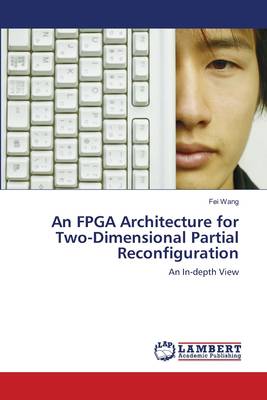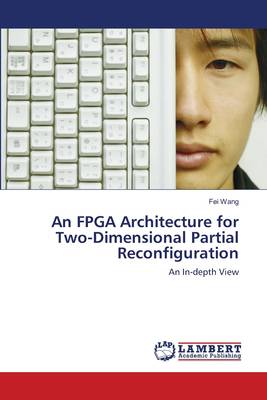
Bedankt voor het vertrouwen het afgelopen jaar! Om jou te bedanken bieden we GRATIS verzending (in België) aan op alles gedurende de hele maand januari.
- Afhalen na 1 uur in een winkel met voorraad
- Gratis thuislevering in België vanaf € 30
- Ruim aanbod met 7 miljoen producten
Bedankt voor het vertrouwen het afgelopen jaar! Om jou te bedanken bieden we GRATIS verzending (in België) aan op alles gedurende de hele maand januari.
- Afhalen na 1 uur in een winkel met voorraad
- Gratis thuislevering in België vanaf € 30
- Ruim aanbod met 7 miljoen producten
Zoeken
An FPGA Architecture for Two-Dimensional Partial Reconfiguration
An In-depth View
Fei Wang
Paperback | Engels
€ 70,45
+ 140 punten
Omschrijving
Reconfigurable machines can accelerate many applications by adapting to their needs through hardware reconfiguration. Partial reconfiguration allows the reconfiguration of a portion of a chip while the rest of the chip is still working. Operating system for partially reconfigurable machines (OS4RC) handles the scheduling and placement of tasks. Some existing OS4RC models assume no data exchange channel between IP (Intellectual Property) circuits residing on a FPGA chip and between an IP circuit and FPGA I/O pins. Other models assume inter-IP communication channels, but they do not work well with 2-D partial reconfiguration. And frequently they are very complicated to design and expensive. To address these problems, a new chip architecture that can better support inter-IP and IP-I/O communication is proposed and a corresponding OS4RC kernel is then specified.The proposed FPGA architecture is based on an array of clusters of CLBs, with each cluster serving as a partial reconfiguration unit, and a mesh of segmented buses that provides inter-IP and IP-I/O communication channels. Features of the new architecture can reduce the kernel execution times and enable the runtime scheduling,
Specificaties
Betrokkenen
- Auteur(s):
- Uitgeverij:
Inhoud
- Aantal bladzijden:
- 140
- Taal:
- Engels
Eigenschappen
- Productcode (EAN):
- 9783844328707
- Verschijningsdatum:
- 16/06/2011
- Uitvoering:
- Paperback
- Afmetingen:
- 150 mm x 220 mm
- Gewicht:
- 227 g

Alleen bij Standaard Boekhandel
+ 140 punten op je klantenkaart van Standaard Boekhandel
Beoordelingen
We publiceren alleen reviews die voldoen aan de voorwaarden voor reviews. Bekijk onze voorwaarden voor reviews.









